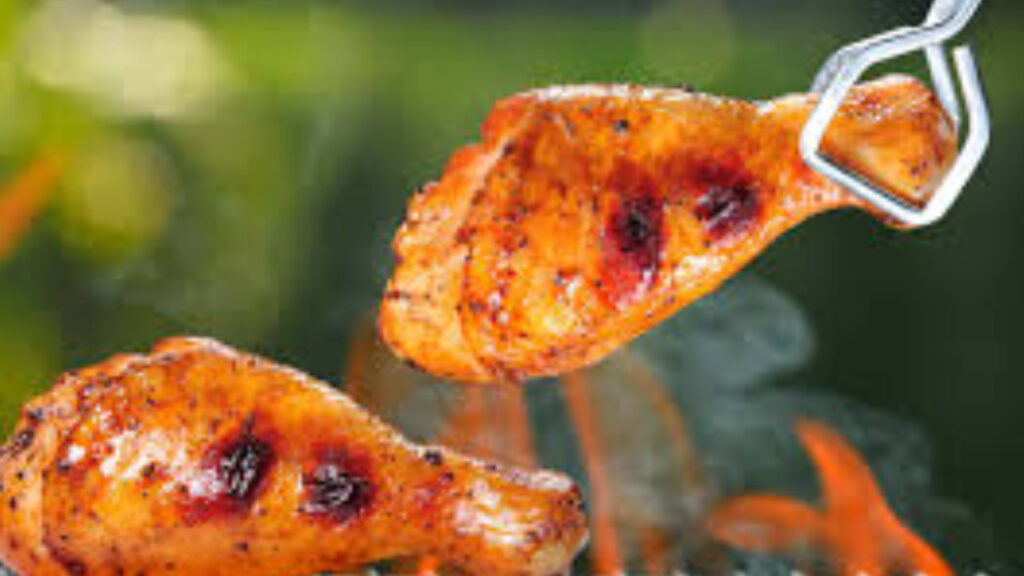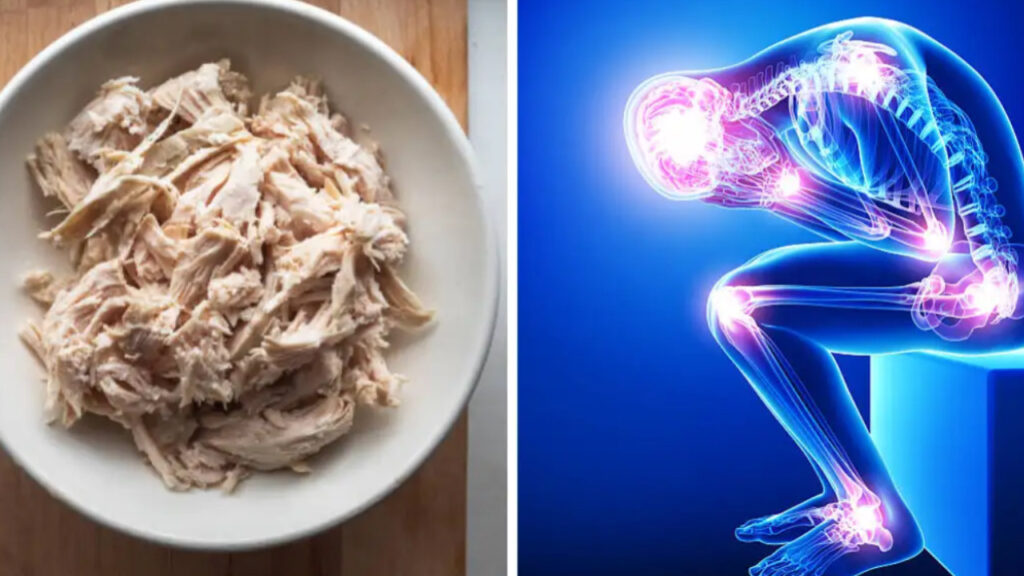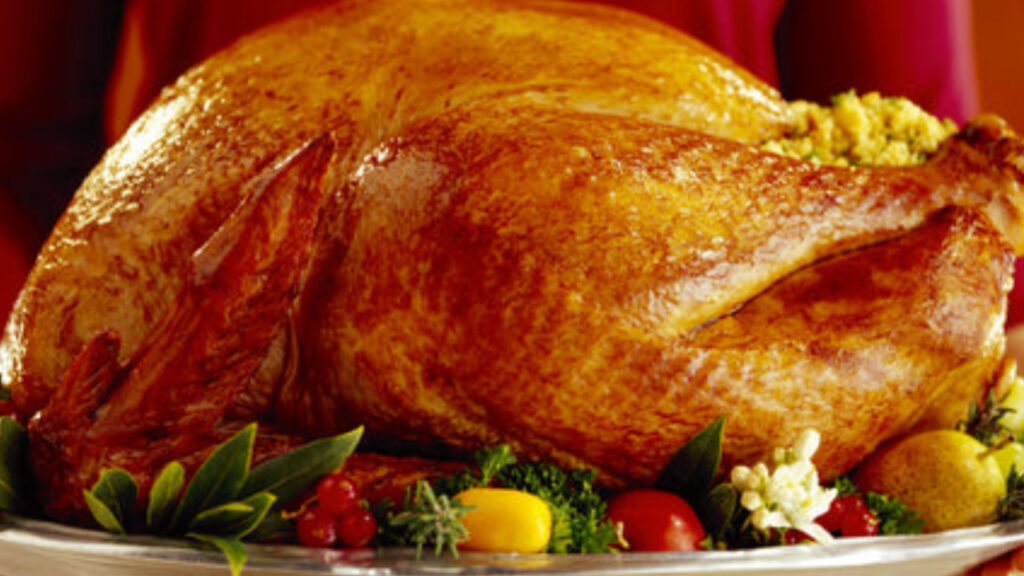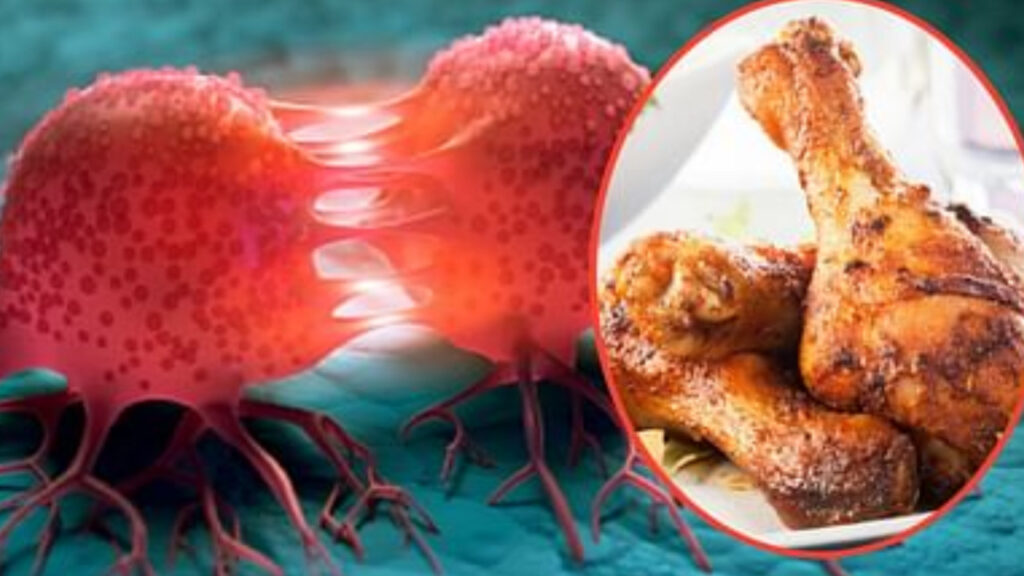Health News
Chicken is a popular source of lean protein and is often considered a healthier alternative to red meat. It’s low in fat, rich in nutrients, and easy to prepare. However, some people wonder whether eating too much chicken could increase the risk of cancer. Let’s explore the facts behind this concern.

Chicken Itself Is Not the Problem
Chicken, when cooked properly and eaten in moderation, is generally safe and healthy. It provides essential nutrients like protein, B vitamins, and selenium. There is no strong scientific evidence that plain, well cooked chicken directly causes cancer.

Cooking Methods Matter
The way chicken is prepared can make a big difference. Cooking chicken at very high temperatures, such as grilling, barbecuing, or frying, can produce harmful compounds called heterocyclic amines (HCAs) and polycyclic aromatic hydrocarbons (PAHs). These chemicals have been linked to an increased risk of cancer in some studies. To reduce this risk, it’s better to bake, steam, or boil chicken instead of frying or charring it on a grill.

Processed Chicken Products
Processed chicken items like nuggets, sausages, and deli meats often contain preservatives, artificial flavors, and high levels of sodium. Some of these additives, especially nitrates and nitrites, may increase the risk of certain cancers when consumed in large amounts. It’s wise to limit processed meat and choose fresh, natural chicken instead.
Hormones and Antibiotics
There have been concerns about hormones and antibiotics used in poultry farming. While many countries regulate the use of such substances, long-term exposure to hormone-treated or antibiotic-laden meat may have health consequences. Opting for organic or hormone free chicken when possible can reduce this risk.

Balanced Diet Is Key
Eating chicken in moderation, as part of a balanced diet that includes vegetables, whole grains, fruits, and healthy fats, is unlikely to increase cancer risk. Problems arise when any one food, including chicken, dominates the diet to the exclusion of other nutrients.
Chicken itself does not cause cancer, but how it’s cooked, processed, and consumed may influence health risks. To stay safe, focus on healthy cooking methods, avoid heavily processed products, and maintain a balanced diet. Moderation and variety are essential for long term health and well being.

The Real Risk: Cooking at High Temperatures
One concern is how chicken is cooked. Grilling, frying, or barbecuing chicken at very high temperatures can produce cancer causing chemicals such as heterocyclic amines (HCAs) and polycyclic aromatic hydrocarbons (PAHs). These compounds form when meat is cooked over an open flame or at very high heat and have been linked to cancer in laboratory studies.
To reduce this risk, consider healthier cooking methods such as baking, steaming, or slow cooking. These approaches not only lower the risk of harmful chemicals but also preserve the chicken’s nutritional value.





